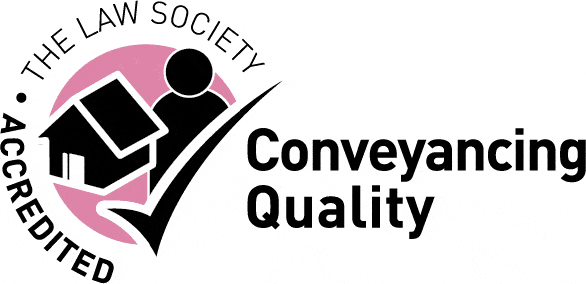How to protect your property from fraud
Property fraud can happen to anyone in many different ways. We are seeing increased property fraud activities from fraudsters as their tactics become increasingly sophisticated. Fraudsters may attempt to acquire ownership of your property by using forged documents to transfer it into their own name or by impersonating the registered owner. The reality is that many property owners are unaware that the personal information held by the Land Registry is available to view easily on the official Land Registry website. This, unfortunately, also includes fraudsters. They can easily find out who owns a property, lender details, correspondence address, and even signature samples.
Vacant properties, tenanted, being refurbished or mortgage free, are considered more susceptible to fraud. However, mortgage-free properties, as well as those with mortgages, are still targeted. Commonly, fraudsters may attempt to acquire ownership of a property by using a forged document or to transfer the property into their own name by impersonating the registered property owner. Here are some top tips from our solicitor David Woodward on protecting yourself and your family from property fraud. Property is usually the most valuable asset people own in the United Kingdom. Therefore, it is important to protect it from the risk of fraud.
 Identity fraud
Identity fraud
Fraudsters are targeting properties by pretending to be you or your family members so they can try and sell or mortgage your property without your knowledge. They may steal your identity and attempt to mortgage or sell your property by pretending to be you. Anybody who owns, or is in the process of buying a property, could potentially be targeted by property scams. However, some are at more risk than others. Fraudsters will often target properties with no mortgage in place or where the owner resides elsewhere if the property is rented or unregistered. It is, therefore, important to protect yourself against fraud that is more easily committed in these circumstances.
According to Gov.uk and the Land Registry, you are at greater risk if:
- Your identity has been stolen
- You rent out your property
- The property’s empty
- The property is being refurbished
- You live overseas
- The property isn’t mortgaged or ‘Mortgage Free.’
- If the property is unregistered
- If the property is not registered with HM Land Registry
Over the last ten years, around £55 million has been paid out under the indemnity scheme because of forgeries. This is a significant sum, so, wherever possible, HM Land Registry will try to recover indemnity payments from wrongdoers who have caused or contributed to the fraud. We strongly believe you should not become a property fraud victim and advise taking these precautionary steps.
Sign up for the Land Registry Property Alert Service
Once you have signed up for the service, you will receive email alerts when certain activity occurs on your monitored properties, allowing you to act if necessary. This service is free to set up via www.gov.uk/property-alert. Once you have signed up for this service, the Land Registry property alert service will notify you of certain applications affecting the property you have registered for monitoring. If there is a change of ownership, for example, or a new mortgage placed on the property, you will receive a notification alert. You can monitor up to ten registered properties in England and Wales. It is important to note that you don’t have to own the property so that you can monitor it for an elderly relative. Alerts are normally sent by email. However, you can still use the service if you are not online by contacting HM Land Registry on 0300 006 0478. If you are to receive an alert about suspicious activity, you should immediately contact the Land Registry Fraud Line on 0300 006 7030 (Monday to Friday, 8.30 am to 5 pm).
Ensure your property is registered at the Land Registry.
You should make sure that your property is registered at HM Land Registry. Your property will be registered if you bought or mortgaged it in 1998. If you’re unsure, you can check with the Land Registry who will be able to confirm whether it is registered or not. If your property is registered and you are a victim of property fraud and suffer financial losses, you will be compensated through the Land Registry indemnity scheme. If your property is not currently registered with the Land Registry, you can apply voluntarily for this to be registered. The Land Registry charges a discounted fee for voluntary registrations, and we can prepare these applications for you at arrisons’Harrison’s Solicitors.
Once your property is registered, you must keep your contact details current. You can include an email address or an address overseas. If you do not live at the property and have moved addresses since the original property purchase, keeping contact details current is particularly important. Many Landlords with buy-to-let properties often overlook reviewing and updating their rental property portfolio contact details when they move home.
Get a restriction against the property.
Suppose you particularly feel that your property is at risk from fraud. In that case, you can apply for a restriction on your property designed to help prevent forgery and fraudulent activities. The restriction is intended to stop activity on your property unless a conveyancer or solicitor confirms you made the application. The Land Registry does not charge a fee for this restriction to be entered as long as the homeowners don’t live on the property they wish to protect. This restriction prevents the Land Registry from registering a sale or mortgage on your restricted property unless a conveyancer or solicitor certifies you applied. We at Harrison’s Solicitors can help with conveyancing and certification restrictions against properties. You must do all that you can to protect your property and investments.
David Woodward from Harrison’s Solicitors states that there are several ways in which you can also take steps to protect yourself and your properties:
If the property is unregistered, we advise you to submit your title deeds to the land registry as a voluntary application to register your deeds. Registering a title is only compulsory if you purchase an unregistered title at the point of sale or mortgage charge. You can also ask your solicitor to apply for a restriction on the registers. This states that the property cannot be transferred or mortgaged without your solicitor or conveyancer supplying a certificate to the land registry. The person applying to change the register is you. Any solicitor or conveyancer must carry out identity checks on their clients whenever a transaction occurs. It is vital to update your contact details with HM Land Registry so they can contact you if required. You are allowed to give up to three contact addresses: an email address or an address abroad.
If you suspect that a property fraud is taking or has taken place, then you should call the property fraud line at the land registry on 0300 006 7030
For further information or advice in respect of protecting your property, don’t hesitate to get in touch with us direct.
| Reading Office – Harrison’s Solicitors 7 Castle Street Reading RG1 7SBTel: 0118 321 2979 Email: reading@harrisonssolicitors.com |
Caversham Office – Harrison’s Solicitors 1 Prospect Street Caversham RG4 8JBTel: 0118 321 9651 Email: caversham@harrisonssolicitors.com |
Woodley Office – Harrison’s Solicitors 72 Headley Road Woodley RG5 4JETel: 0118 321 9773 Email: woodley@harrisonssolicitors.com |
If you are looking for Conveyancing Solicitors in Twickenham and surrounding areas, contact Harrisons Solicitors today!

